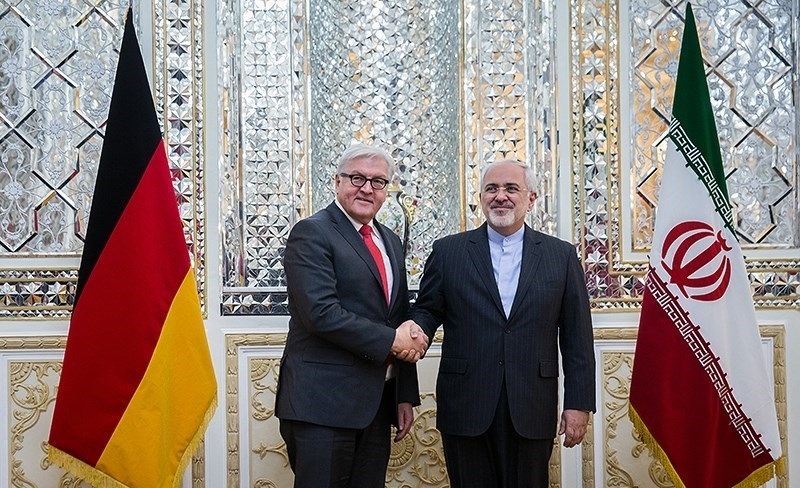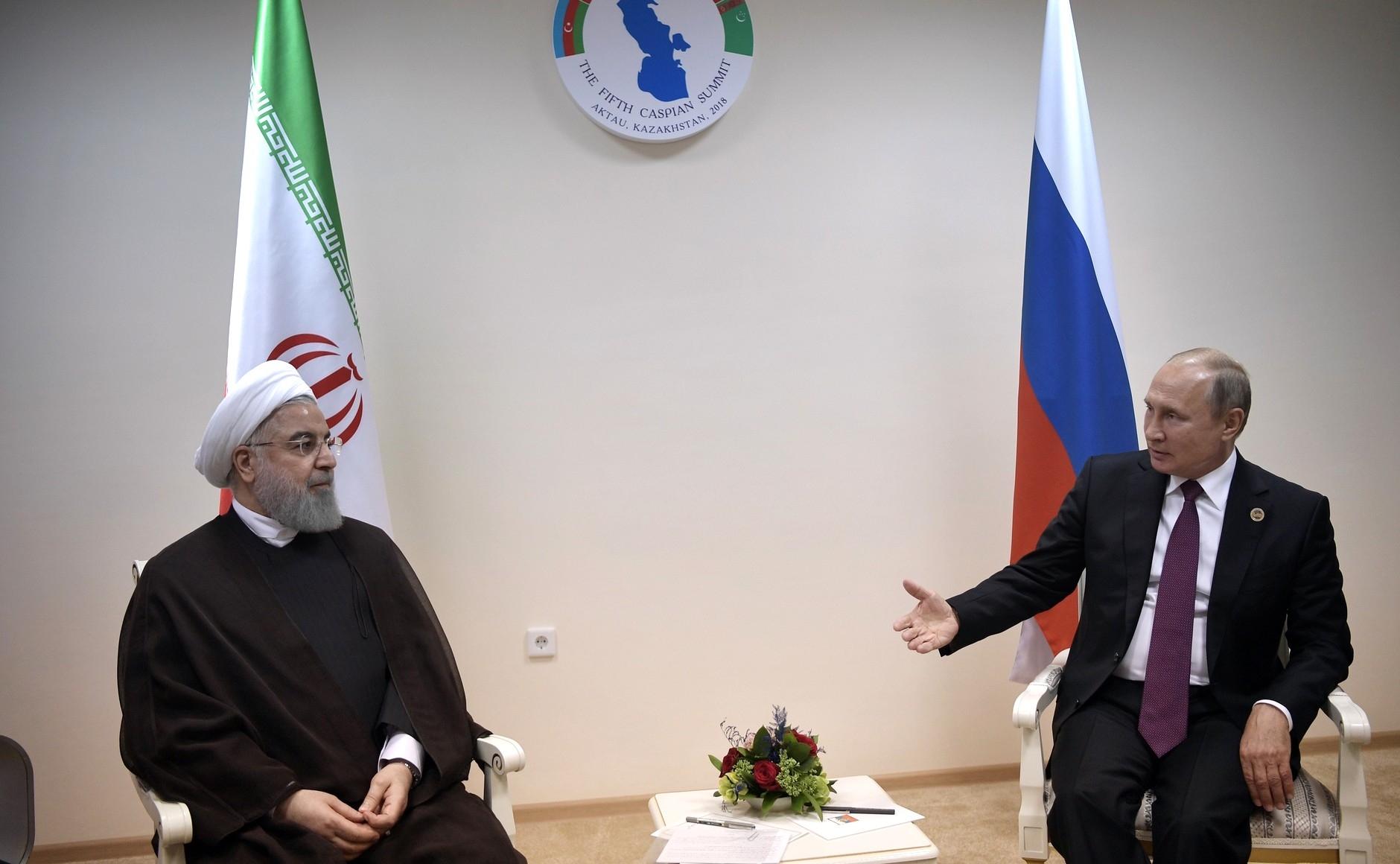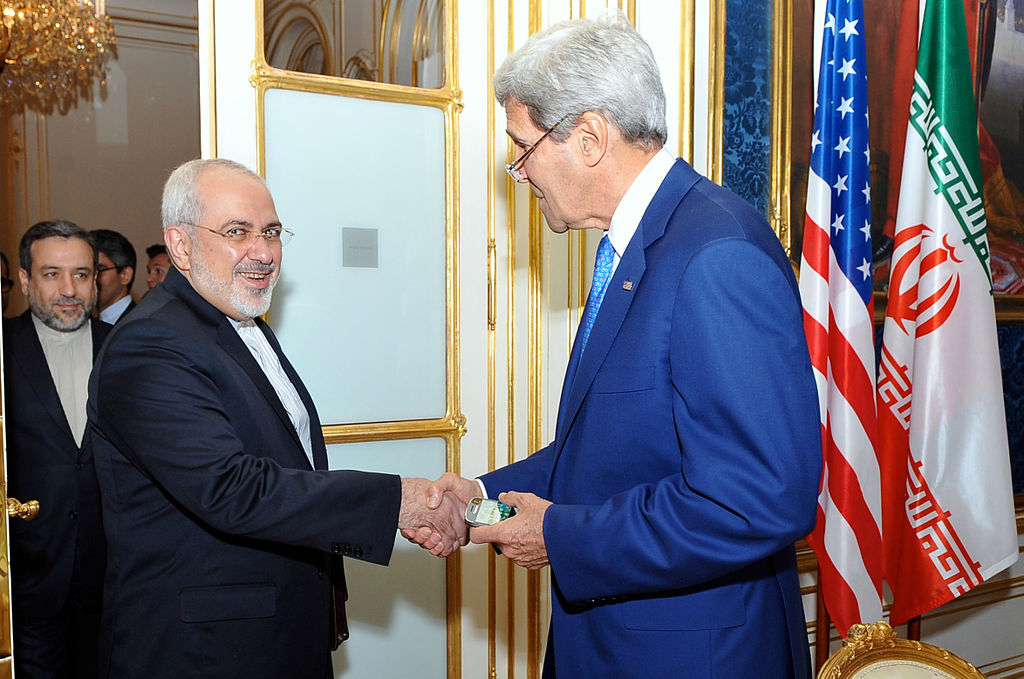In this mailing:
- Soeren Kern: Germany's Pro-Iran, Anti-Israel Foreign Policy
- Amir Taheri: Putin and the Mullahs
by Soeren Kern • August 11, 2019 at 5:00 am
Germany has, in fact, been decidedly hostile to Israel in recent years... Germany continues to provide millions of euros annually to organizations that promote anti-Israel BDS (boycott, divestment and sanctions) and "lawfare" campaigns, anti-Zionism, antisemitism, and violence, according to NGO Monitor.
German Chancellor Angela Merkel said in 2008 that Israel's security in "non-negotiable" and Foreign Minister Heiko Maas said in 2018 that he went into politics "because of Auschwitz." In practice, however, Germany consistently appears to prioritize its relations with Israel's enemies.
Instex, an initiative of German Foreign Minister Heiko Maas, would enable European trade with Iran despite U.S. sanctions. It would facilitate barter-based trade with Iran in products such as pharmaceuticals and foods, but Tehran has repeatedly insisted that Instex must include trade in oil for the mechanism to make economic sense.
Seven months after its formation, Instex remains non-operational, in part because Iran still does not comply with international legal standards to prevent money laundering and terrorist financing.

Germany has been decidedly hostile to Israel in recent years. In May 2016, Germany approved an especially disgraceful UN resolution that singled out Israel at the annual assembly of the World Health Organization (WHO) as the world's only violator of "mental, physical and environmental health." German President Frank-Walter Steinmeier has cozied up to the Iranian regime and other enemies of Israel. Pictured: Iranian Foreign Minister Mohammad Javad Zarif meets with Steinmeier (Germany's foreign minister at the time) in Tehran, on February 3, 2016. (Image source: Tasnim/Wikimedia Commons)
A senior German diplomat appointed to head an EU barter system that would enable European companies to sidestep U.S. sanctions on Iran stepped down after giving an interview in which he criticized the existence of Israel and praised Tehran's ballistic missile program.
The episode — the latest of a series of occurrences that have laid bare the anti-Israel foundation of Germany's foreign policy — is an embarrassing setback for the German government and will complicate its efforts to salvage the Iran nuclear deal.
Bernd Erbel, a 71-year-old former German ambassador to Iraq and Iran, said that he would not assume leadership of Instex, a payment mechanism to facilitate European business with Iran, after the newspaper Bild, on August 8, published the contents of an extensive interview Erbel gave to Ken Jebsen, a German-Iranian radio host who has been described as a "conspiracy theorist" and an "anti-Semite."
by Amir Taheri • August 11, 2019 at 4:00 am
For several reasons, the "nuke deal" did not provoke the popular explosion in Iran that some analysts expected. To start with, no one had signed that deal, which meant it was neither a treaty nor a binding international agreement but a wish list.
Because this is a Russian text, in the preparation of which other littoral states played no part, the implication may be that Russia is the sole sovereign power, and thus ultimate arbiter of disputes in the Caspian Sea. If that assumption is correct, we may conclude that Russia has acquired a colonial advantage that it could not obtain even when Iran was weak, famine-stricken and war-broken under the Qajar Dynasty.
With this text, Russia secures two other advantages.
First, it gains control of pipelines transiting the Caspian Basin's immense oil and gas reserves to world markets, notably Europe. That would push Iran, which is the economic route for those pipelines, out of competition. Russia will retain its principal card in facing Western powers.
Russia, already the only significant military force in the Caspian, will retain its monopoly by forbidding other littoral states to build a military presence with the help of non-littoral allies.

Pictured: Russian President Vladimir Putin and Iranian President Hassan Rouhani meet at the Fifth Caspian Summit in Aktau, Kazakhstan, on August 12, 2018. (Image source: kremlin.ru)
In 2015 when President Hassan Rouhani advertised his "nuke deal" with the Obama administration as "the greatest diplomatic victory in the history of Islam," few people realized that he had, in fact, endorsed a neo-colonial document that put key aspects of Iran's economic, industrial, scientific and security policies under the tutelage of six foreign powers led by the United States.
For several reasons, the "nuke deal" did not provoke the popular explosion in Iran that some analysts expected. To start with, no one had signed that deal, which meant it was neither a treaty nor a binding international agreement but a wish list. Nor was it put through the legislative process to give it legal authority. More importantly, perhaps, the text did not offer a readily recognizable and concrete image of the humiliation the "Islamic Republic" had accepted in the name of Iran.
by Majid Rafizadeh • August 10, 2019 at 5:00 am
If history is anything to go by, the Supreme Leader's statement is barely worth a pinch of salt. It is notable that that the first time Ayatollah Ali Khamenei issued a fatwa against nuclear weapons took place right after his government was caught red-handed pursuing secret nuclear activities and enriching uranium in two clandestine nuclear sites in Natanz and Arak in 2002 in violation of the Non-Proliferation Treaty (NPT).
Having been found out for their deception, the Iranian authorities subsequently adopted deception as a national policy by promoting the narrative of aversion to nuclear weapons to the world while embracing and furthering their nuclear activities privately.
First of all, no one, it seems, has ever laid eyes on this proclaimed fatwa.
Khamenei's nuclear fatwa is nothing but a phony decree aimed at deflecting attention from Iran's nuclear ambitions and activities. It is designed solely to serve the interests of his umma (Islamic community) and the Islamic Republic.

Iranian authorities adopted deception as a national policy by promoting the narrative of aversion to nuclear weapons to the world while embracing and furthering their nuclear activities privately. Some world leaders bought Iran's lie and began pressing others to follow suit. Pictured: Then US Secretary of State John Kerry shakes hands with Iranian Foreign Minister Mohammad Javad Zarif in Vienna, Austria, on July 14, 2014. (Image source: US State Department)
In the world we live in where many things are certain, one of them is the Iranian regime's recent efforts to invoke a fatwa in an attempt to deceive the West. The declaration of a fatwa by Iran's Supreme Leader, Ayatollah Ali Khamenei, to serve as "proof" that Tehran is not pursuing nuclear weapons is a move both mischievous and clever.
Recently, the junior Senator from Kentucky, Rand Paul, met with Iran's foreign minister Javad Zarif, who in his deliberations with Senator Paul told him about Iran's unwillingness to seek nuclear weapons because of Khamenei's fatwa.
Iran's Supreme Leaders had been previously quoted as saying:
"We consider the use of such weapons as haraam [religiously forbidden] and believe that it is everyone's duty to make efforts to secure humanity against this great disaster".
|
|
|
|
No comments:
Post a Comment